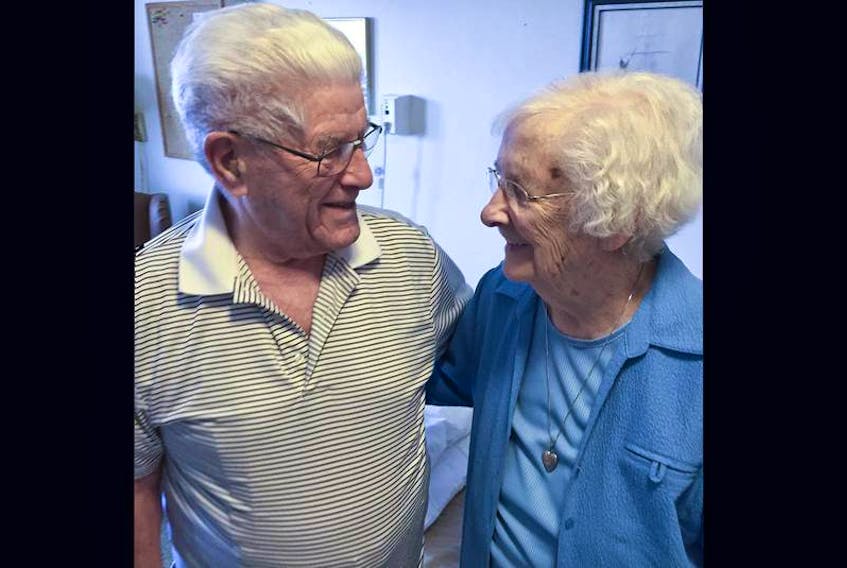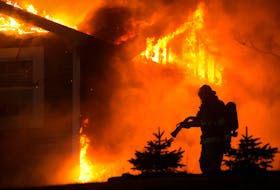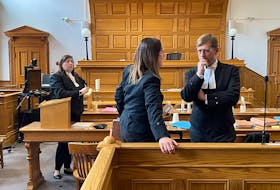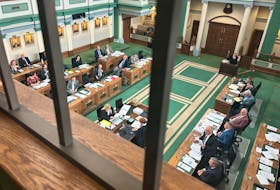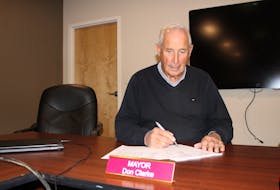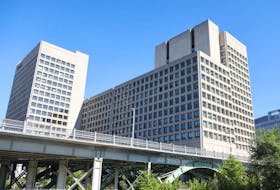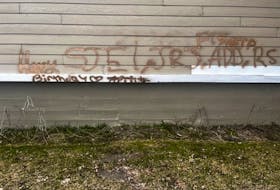Halifax, N.S. — Bryce Gibson likely wouldn’t have contracted COVID-19 if he had stayed put at Camp Hill Veterans’ Memorial Hospital in Halifax.
But the 98-year-old Second World War veteran needed to be with Hazel, his lifelong sweetheart, and wife of 77 years.
Gibson reluctantly left the Veterans Affairs Canada-funded long-term care facility in February 2019 and he and Hazel moved into Northwood nursing home. Over a year and a half prior to his move Gibson and his family had made repeated requests to Veterans Affairs asking that Hazel be permitted to live with him at the veterans’ hospital.
The department denied those requests because its funding model doesn’t allow for veterans and spouses to live together at the facility, though there were vacancies there.
Roughly 15 months after moving into Northwood both Bryce and Hazel contracted COVID-19. They tested positive for the virus last week and are quarantined together in their room. The facility has been hit by a deadly outbreak of the virus. Since April 18, 25 residents have died of the virus, including two deaths announced Saturday.
Judy Gibson, the couple’s daughter in law, has been their main advocate and lobbied Veterans Affairs to have them together at Camp Hill. After losing that battle she found the couple a spot at Northwood.
Like last year, she’s frustrated that Veterans Affairs never made an exception for the couple at Camp Hill given that there were vacancies at the facility and there are only a small number of Second War Veterans still alive. Besides that, Veterans Affairs never contacted the couple or the family during the outbreak, said Judy. Bryce also has dementia.
“We would have appreciated a letter or email letting us know that support was there for Bryce and Hazel if they needed it,” said Judy.
Veterans Affairs wouldn’t comment on Gibson’s case, citing privacy reasons, but suggested in an email the onus was on the family to contact the department for support.
“When the department is made aware of a confirmed case in a long-term care facility that houses one or more veterans, we work closely with the veterans, their families, and facility management to ensure that all the veterans' needs are being met,” said spokesman Marc Lescoutre on Tuesday.

At that point, six veterans had died of COVID-19 and 36 others had the virus in various long- term care facilities across Canada, he said.
Veterans Affairs wouldn’t say whether anyone at Camp Hill had contracted COVID-19 but a staff member told the Herald on Friday that no one had.
Dr. Samir Sinha, director of geriatrics at Sinai Health and University Health Network in Toronto, said the couple’s prognosis is not good. He slammed the government for neglecting the Gibsons at their time of need. He said as a Second World War veteran Bryce is entitled to care from the federal government over and above that of other veterans.
“Here’s a man who couldn’t stay in the community and wanted to look at other options with his wife but the bureaucracy got in the way, right," said Sinha, who’s considered the foremost geriatrics expert in the country. “So, in the end, this couple ended up at a home in a less than ideal situation than what they wanted in the first place. Now, this poor gentleman and his wife know they’re infected with COVID-19 and they've got a one-in-three or one-in-four chance of dying."
Judy said the couple has mild symptoms and is expected to make a full recovery. Both remain in good spirits, she said.
As for the situation at Northwood, she's not laying blame on the workers at the facility. She said staff there have provided excellent care to the couple. Her frustration is that the province was slow to respond to the fatal outbreak. The government lagged to implement federal COVID-19 guidelines for long–term care facilities issues on April 8, including instructing workers to wear surgical masks and testing asymptomatic residents at outbreak sites.
"If I was going to be mad at anybody, it would be the provincial government for not testing staff and residents earlier," said Gibson. "Had they been tested from the outset and then any positive residents moved offsite I believe it would have been a much smaller outbreak and contained quicker and easier.”
She also said the province should have moved quicker to move all confirmed cases offsite at the outset of the outbreak.
“No, it would not have stopped the outbreak completely, but I believe it would have cut the number of cases drastically.”
Wayne MacKay, a Dalhousie University law professor, said the fatal outbreak shines a light on the plight of the elderly subject to institutionalized care. MacKay, a human rights expert, pointed out that the lack of protection offered to Gibson and others at Northwood borders on discrimination based on age, a human rights and Charter violation.
“The reality of virtually every province in Canada is that we do not put sufficient human and economic resources into our oldest and most vulnerable population," said MacKay. “It’s just being dramatized now when we’re faced with a huge pandemic like the COVID-19 crisis.”
The predicament facing the few remaining Second World War veterans, such as Bryce, is often worse, said the professor.
“They face a second level of discrimination that’s based on disability," said MacKay. “They are particularly vulnerable in so many ways but have contributed so much to Canadian society, that we should be extra careful to be sure that they are protected and respected for their contributions.”
He said Gibson’s situation reflects poorly on the Trudeau government that criticized the previous Harper government for its treatment of veterans.
“One would think our government's pledge to better support our veterans would include reaching out to them at a time like this, to ensure that they are adequately protected and adequately served.”

